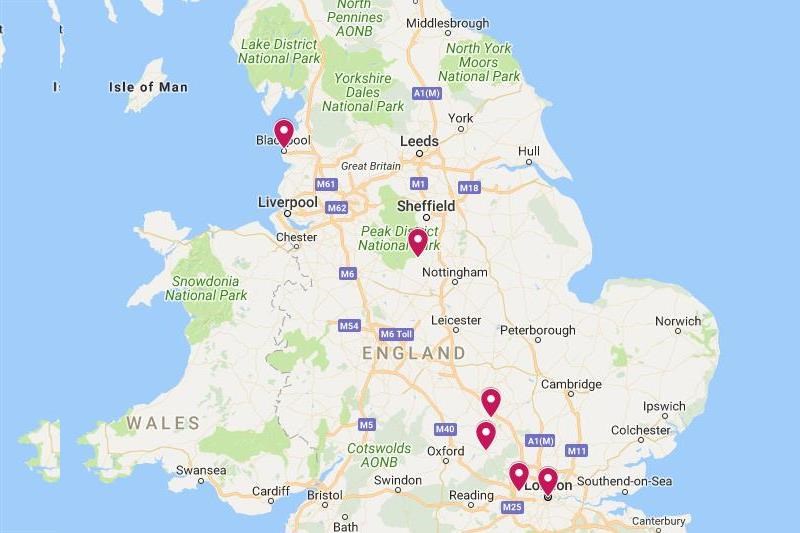Mumsnet survey reveals 50% of parents aware of first birthday dental visit
Published: 10/04/2018
A survey of 1,000 Mumsnet users reveals around one quarter had problems accessing free NHS dental care.
Children’s doctors are calling for councils to give every child an equal opportunity to good dental health.
Only half of those who responded said they were aware of official advice recommending they take their child to the dentist before their first birthday.
The survey ,conducted by Mumsnet for the Royal College of Paediatrics and Child Health (RCPCH), assessed parents’ knowledge of children’s oral health and experience of accessing dental care. It found:
- Only 50% knew that the NHS recommends taking your child to a dentist before their first birthday
- 23% had problems accessing free NHS dental care, either for themselves during pregnancy and in the early days of motherhood, or for their children
Over a third (41%) of five-year-olds every year are diagnosed with tooth decay and tooth decay is the most common single reason why children aged five to nine require admission to hospital.
It has prompted calls from the RCPCH for areas where there are significant oral health problems to prioritise children’s oral health in their Health and Wellbeing strategies and use tried and tested schemes like supervised tooth brushing in nurseries and Brushing for Life packs – packs which contain toothbrushes, fluoride toothpaste and information on dental hygiene – to improve outcomes and reduce health inequalities.
Dr Elizabeth O'Sullivan of the Royal College of Paediatrics and Child Health (RCPCH) said: 'Tooth decay is a horrible condition which causes toothache, cavities to develop in the teeth and sometimes abscesses. To treat it, children often have to have their decayed tooth extracted and this is an expensive business, costing the NHS around £50 million for those under the age of 19. The prospect of having an operation is often scary for children and the risks associated with them should not be underplayed.
'Currently, there is a postcode lottery in children’s oral health with some areas providing high quality interventions and awareness campaigns while others do not. This means there are pockets of children up and down the country missing out on services that are provided free of charge to others in neighbouring towns and cities. Surely it is easier to prevent poor dental health rather than try and treat it when it’s too late. That’s why we are calling for all local authorities to show they take children’s dental health seriously by prioritising oral health in Health and Wellbeing Strategies in areas where the oral health of children and young people is a significant problem.'
Rowan Davies, Head of Policy and Campaigns at Mumsnet, said: 'Finding out that your child has bad oral health or needs a filling can be a really disappointing and even embarrassing moment for parents – it’s even worse if the problem has been compounded by difficulty accessing care. Together with a good diet and regular brushing, the availability of affordable dentistry is an important part of the puzzle.'
There are a number of successful child oral health schemes already provided by local authorities including:
- Derbyshire (Derby Teaching Hospital): A dentist is now based in the hospital working alongside professionals to promote child oral health – it is thought to be the first position of its kind in the UK.Working with medical students from University of Nottingham, Colgate, Derbyshire Salaried Primary Dental Care and the children’s outpatients’ team, the ‘Bin the Bottle, Dump the Dummy’ campaign successfully engaged with over 200 families to raise awareness, teach and sign-post children and families to good dental hygiene.An advert airing on Capital Radio has been developed to sign-post listeners to local information on dental health services. This advert is also going to be played on the tannoy system in the children’s emergency and outpatient department.
- London Borough of Hillingdon: Hillingdon Dental Health Educator along with a dentist also attended several community centres including Hayes Town Mosque at the beginning of the year to provide dental health advice to the men, women and children who use the facilities. They also ran ‘Bottle-to-cup’ events encouraging parents to swap their baby’s (1yrs+) bottle for beakers or cups.
- Milton Keynes: The council run SMILE training for practitioners and anyone else who comes into contact with children and young people. The two-hour training is delivered with dietitians and covers tooth care and healthy eating, raising awareness of the importance of good oral health.
- Blackpool (Blackpool Better Start Partnership): a supervised tooth brushing scheme has been in place in children’s centres since 2016, aimed at improving oral health skills in 2–4 year olds. In March 2017, the Better Start programme rolled out a toolkit for nurseries and child minders to initiate supervised tooth brushing in their own settings which includes fluoride toothpaste, tooth brush storage containers and timers along with guidance on tooth brushing, tooth brush songs and healthy snack guidance
The RCPCH is inviting local authorities and communities to send in examples of their effective children’s oral health interventions, which the College will add to an interactive map, to promote and share good practice and innovative ideas. The RCPCH is also recommending:
- Individuals
- swap fizzy drinks for water
- brush your child’s teeth twice daily for two minutes at a time with fluoride toothpaste
- ensure your child visits the dentist by their 1st birthday - National Government
- recurrent costs of Community Water Fluoridation (CWF) Schemes should be removed from Local Authority responsibility and instead covered by NHS England - Local authorities
- Oral Health Community Champions should be adopted by all local authorities in England to help raise awareness of good oral health in the community
- Areas where there are significant oral health problems should prioritise children’s oral health in their Health and Wellbeing strategies.
Author: Julie Bissett











.jpg?width=150&height=100&scale=canvas)

